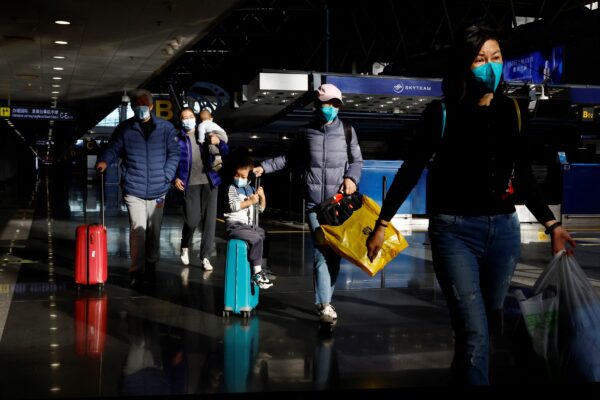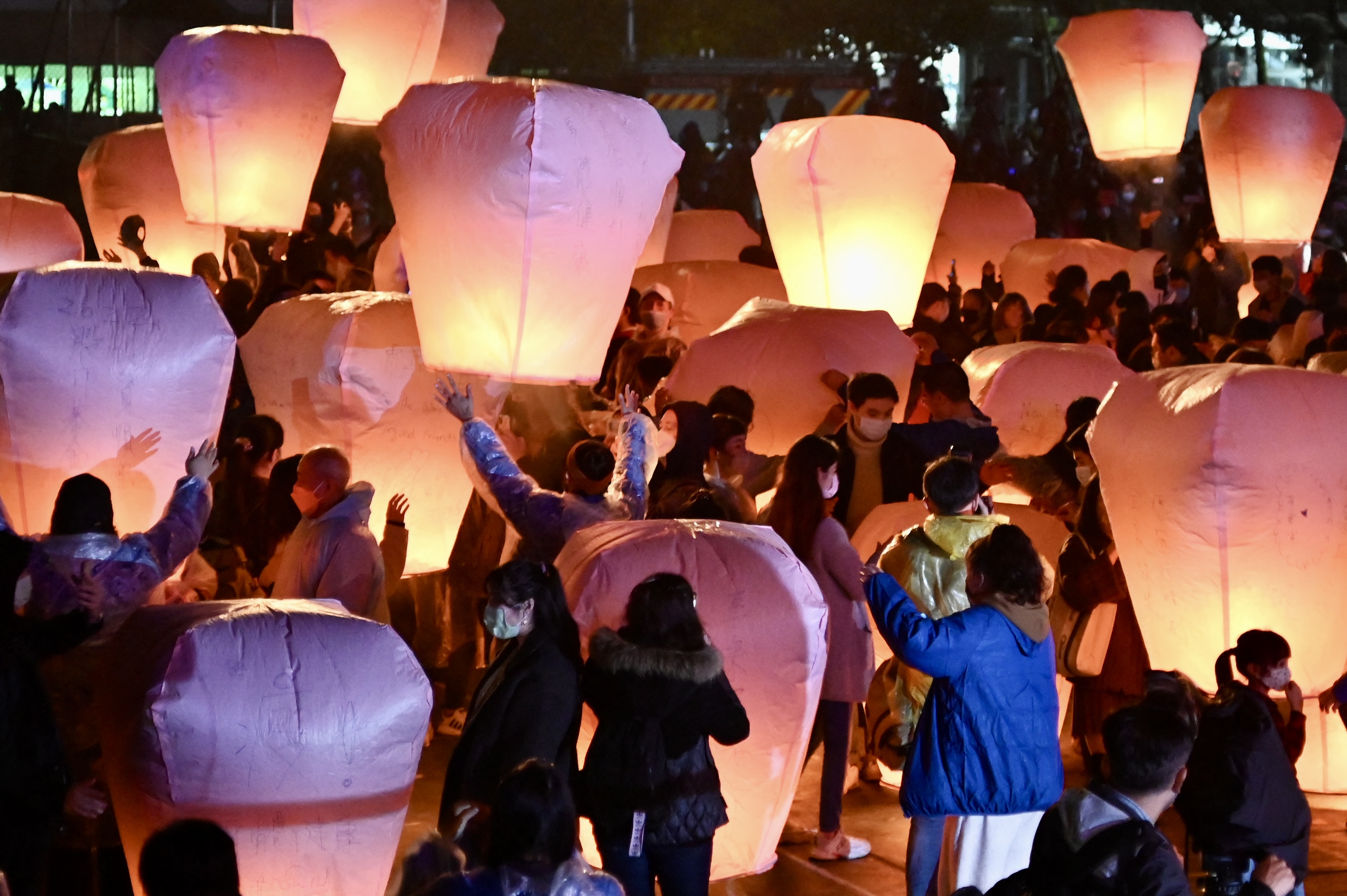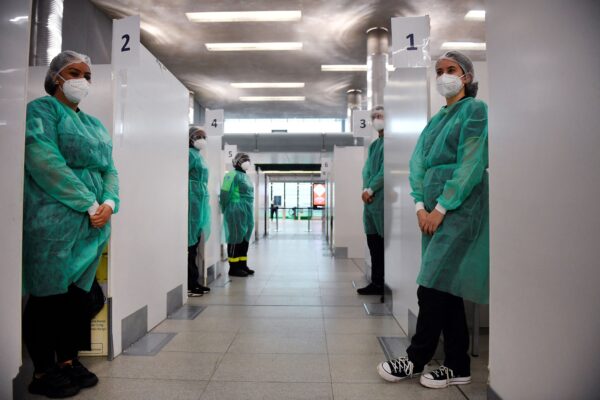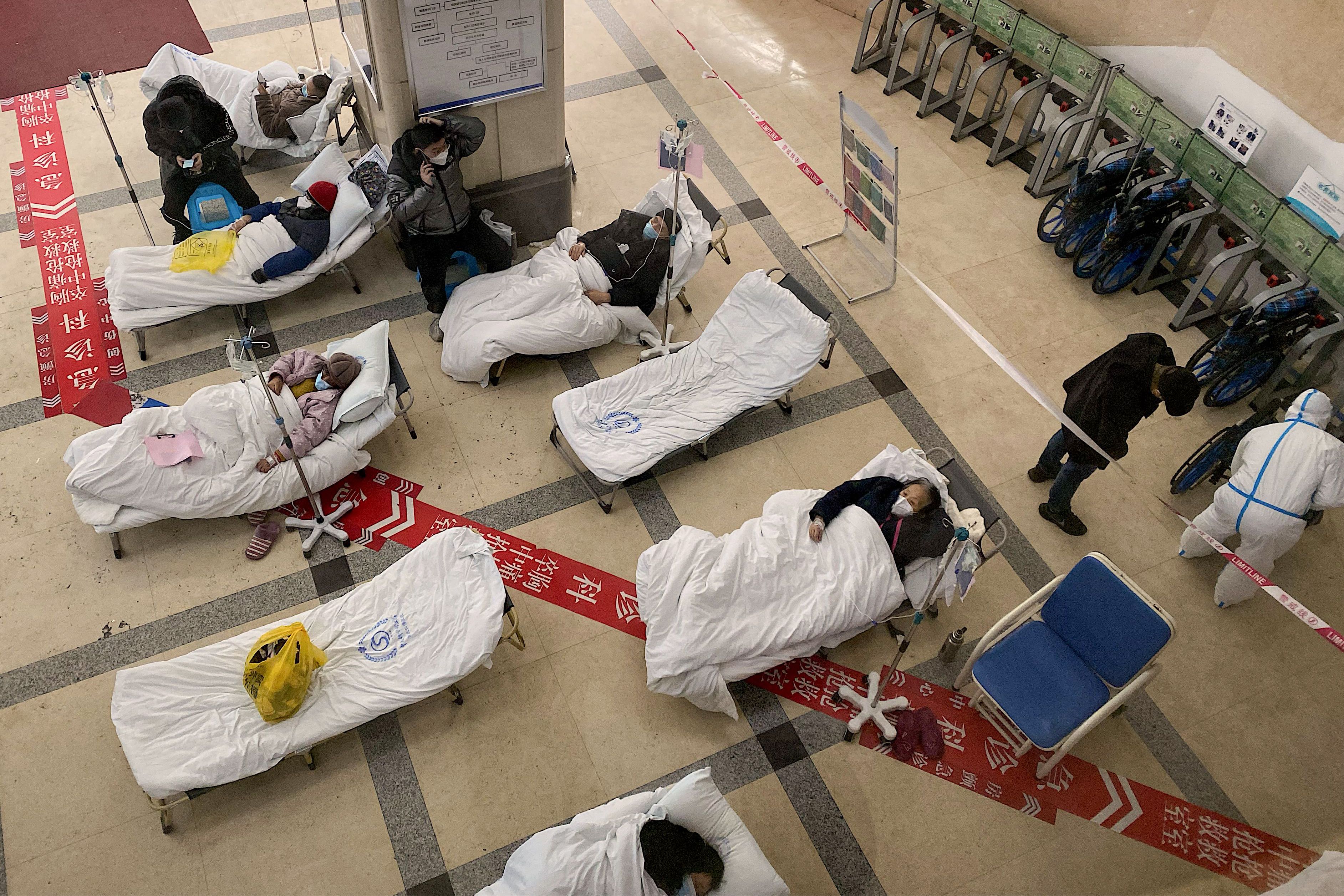Taiwan Tightens Entry Rules in Response to China’s Unchecked Reopening of International Travel
Distressed Patriotic Flag Unisex T-Shirt - Celebrate Comfort and Country $11.29 USD Get it here>>

Taiwan scholar says CCP’s handling of COVID-19 has ‘a reckless disregard for human lives’
Taiwan is one of the latest countries to tighten entry rules for people who have visited mainland China where the communist regime has removed cross-border traveling restrictions despite a COVID-19 outbreak sweeping across the country.
Effective on Jan. 1, all travelers coming from mainland China, including returning Taiwanese nationals or non-Chinese foreign nationals, have been required to undergo a saliva-based polymerase chain reaction (PCR) test upon arrival in Taiwan, the Central Epidemic Command Center (CECC) said on Dec. 28.
The testing policy, which is expected to end on Jan. 31, would also apply to arrivals from Taiwan’s Kinmen and Matsu islands. Hong Kong and Macau travelers are not subject to the measures.
The move came after Japan announced entry restrictions on tourists from China, which went into effect on Dec. 30.
Taiwan has maintained its banning of mainland Chinese tourists since the start of the COVID-19 pandemic in early 2020, and this rule has not changed. Taiwan currently only permits Chinese nationals to visit for family or business reasons.
All arriving travelers are to be handed rapid antigen testing kits, and those who test positive for COVID-19 are required to go into quarantine for five days and monitor their health until they test negative for the disease, CECC spokesman Chuang Jen-hsiang said.
The CECC added that the decision was due to Beijing’s abrupt reversal of its epidemic prevention policies and control measures, with unknown information on the COVID-19 situation and the surge in infected people in mainland China.
Samples from people positive for COVID-19 will be sent to the Kunyang Laboratory of Taiwan CDC for virus genome sequencing.

Outbound Tourism to Resume
China’s National Health Commission said on Dec. 26 that the country would end all quarantine requirements for inbound travelers to China as soon as Jan. 8. The cap on the number of international flights coming in and out of China will be scrapped, and outbound tourism, which plummeted to almost zero during the pandemic, will resume in “an orderly manner.”
The commission on Dec. 25 said it would no longer publish daily COVID cases or deaths after leaked data revealed that an estimated 428 million people contracted the disease in the first 20 days of December.
Tan Yao-nan, a frequent guest on Taiwan’s political commentary programs, told The Epoch Times that about 30,000 people would enter Taiwan from China in January due to the coming Lunar New Year, a major holiday in Chinese-speaking countries.
“A large number of people will return to Taiwan from China before Jan. 20, the day before Lunar New Year’s Eve. This level of concentration is different from other countries. Therefore, we must pay close attention to it before and after the Lunar New Year,” Tan said on Dec. 29.

“Taiwan government’s early response (to tighten entry rules) is right. It did a good job of preventing the epidemic three years ago, and now it must be ready.”
Tan said that Taiwan might be able to grasp the types of mutant viruses exported from China within about a week from Jan. 1, when mandatory PCR tests for China arrivals come into effect.
He said that the current problem in China is not only the major COVID outbreak but also the uncertain environment where people distrust the authorities there.
Japan was the first to implement screening measures for Chinese inbound passengers. Starting from midnight on Dec. 30, travelers from mainland China have been required to present a negative COVID test result upon arrival. Visitors who test positive have to quarantine for seven days, and five days for those who are asymptomatic.
Other countries, including the United States, Australia, Canada, South Korea, and Malaysia, have also imposed PCR testing requirements for all arrivals from China after Beijing eased its zero-COVID policy. Morocco has banned all arrivals from China, regardless of their nationality.
‘Virus Will Mutate’
Tan pointed out that the COVID-19 pandemic is about to enter its fourth year, and just as the world thought it was coming to an end or becoming a general epidemic, Beijing is creating another disturbance.
“It is reported that 800 million to one billion people have been infected [with the virus] in China. There is also a consensus among many epidemiologists that the virus will mutate,” Tan said. “Therefore, countries now must take emergency response measures, such as reducing flights and screening Chinese inbound passengers.”

Tan believes the reasons that led to China’s abrupt reopening include severe economic contraction, significant demand reduction, and the massive costs of nucleic acid testing.
‘Reckless Disregard for Human Lives’
Tseng Chien-yuan, a professor at Taiwan’s National Central University and an expert on China, told The Epoch Times that the handling of COVID-19 by the Chinese Communist Party (CCP) is so extreme that it is “a reckless disregard for human lives.”
“Beijing’s policy explanations are seriously insufficient and are wholly based on the regime’s ruling convenience. Its policy action is very absurd and incomprehensible,” Tseng said on Dec. 29.
He said the CCP’s action to allow Chinese people to travel to other countries is called “doing harm to neighbors.”
“As a member state of the World Health Organization (WHO), China should effectively report through WHO so that the organization can diagnose its reopening policy,” Tseng said.
“Whether such a large-scale reopening will result in another global disaster depends on whether the CCP can make rational and scientific assessments through the help of objective organizations. It cannot be based on its unilateral decision.”

Tseng believes the CCP intends to get through the peak of the outbreak by speeding up the country’s reopening, letting the virus weed out those with weaker immunity, and leaving those with stronger natural immunity. He believes that is why China abandoned almost all pandemic prevention measures.
He said this is not the case in democratic countries. For example, in Taiwanese society, people take the initiative to participate in public epidemic prevention governance through the power of professional groups. And that private groups can fill the government’s gaps, creating a virtuous circle.
“Taiwan does not need to rely on a large number of police or military for epidemic prevention. Everyone is self-disciplined, cares about each other, and reminds each other among relatives and friends that epidemic prevention can be done well,” Tseng said.
“There is absolutely no need to invest a lot of state funds and implement it through state violence like how China does it,” he said.
“Moreover, Taiwan’s government allows experts to make relevant decisions, and the reasons are fully known to the public. The policy is transparent, and if the government deliberately conceals it, there will be legislators who will question it to no end.”
Tseng added that the emergence of a democratic society is that “everyone can be independent, self-disciplined, self-governed, and at the same time enjoy freedom.” And China’s governance approach is destined to be a disaster.






